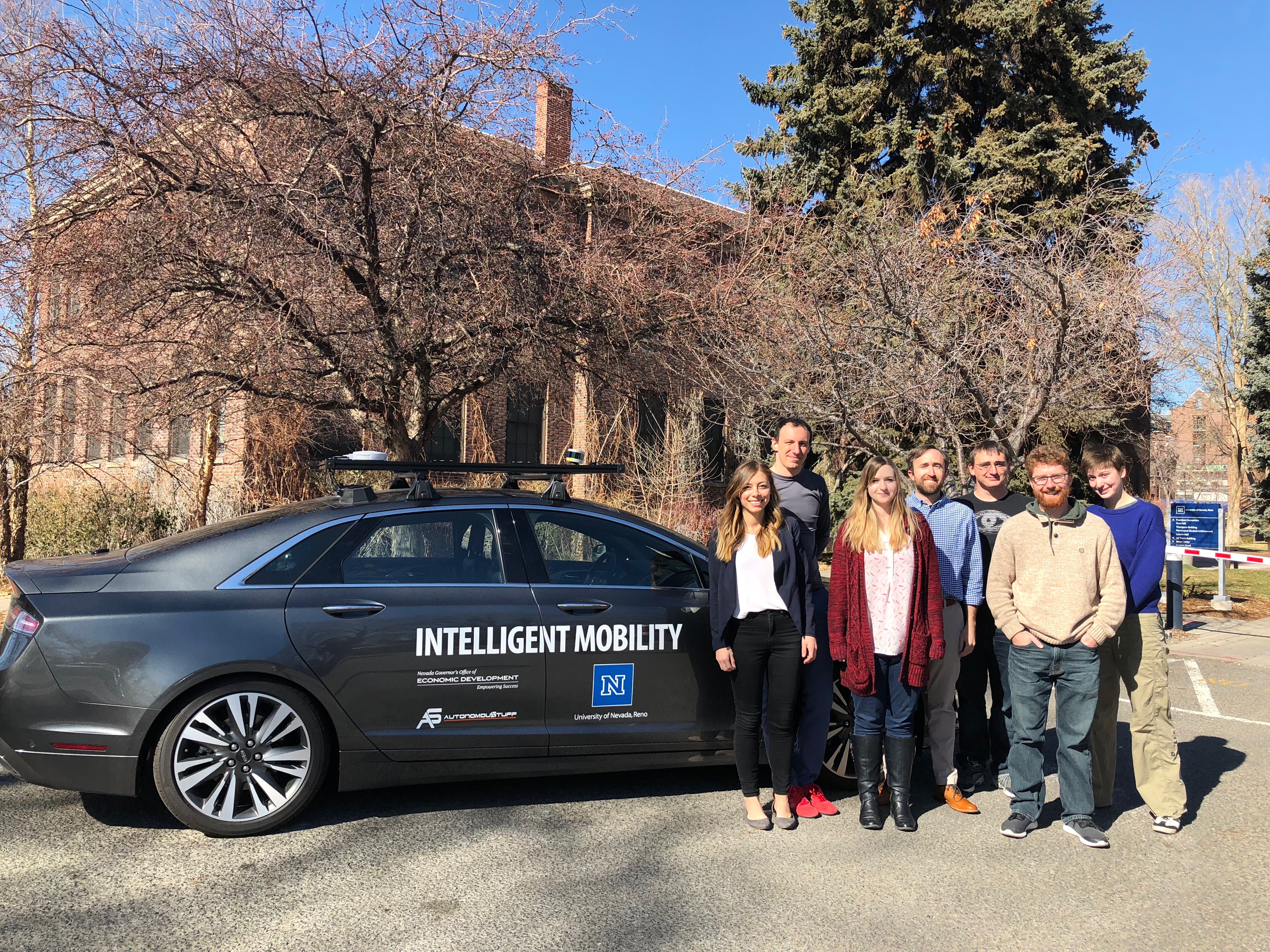
Blanca Miller
graduate studentcomputer science & engineering
"Nothing is certain or proved beyond all doubt. You investigate for curiousity, because it is unkown, not because you know the answer. And as you develop more information in the sciences, it is not that you are finding out the truth, but that you are finding out that this or that is more or less likely." --Richard Feynman
About Me

Hola! My name is Blanca Miller (far left in image above) and I am a graduate student of computer science and engineeering at the University of Nevada, Reno. My research focus is in applications of machine learning for robotics. This means that I apply predictive solutions for robots in the wild. Specifically, I am using reinforcement learning on a autonomous ground vehicle, a Lincoln MKZ (see image above). I am also interested in developing robust machine learning techniques through integration of causal inference.
I have been a research assistant since 2016. Since the Summer of 2017 I have been working with a multi-disciplinary team of engineers to tackle autonomous driving for our university's project, Inteligent Mobility. Our lab's research is led by Dr. Richard Kelley. My academic track was initially in secondary education in math (B.S. 2013) and equity and diversity (M.S. 2016). While working on my first masters, I was a high school math teacher and decided to go back to school for engineering. I have an engineering background in mechanical engineering (minor 2016) and computer science (M.S. 2018). I am finishing my masters in computer science this May, then moving on to my PhD in computer science!
Research Projects
Reinforcement Learning for an Autonomous Ground Vehicle Controller
I am developing a controller using tried and true control theory, while also taking advantage of current deep learning methodology. My hope is to produce a high-accuracy optimal controller for a self-driving Lincoln MKZ, as reliable and accurate systems remain an open-problem for autonomous systems.
Multi-GPU Controller using NVIDIA's PX2
Due to autonomous vehicle hardware being very new and not well understood in practice, I am determining software structure efficiency to optimally use on-board computing resources. Vehicle's are equipped with lots of sensors, e.g. multiple cameras and lidar. This requires a balance of computational resources so that no one aspect of the system hoards the computational power and potentially causes a bottle-neck that dilutes accuracy and safety.
Causal Inference for Machine Learning Decision-making Logic
This is a newly evolving interest. Existing machine learning methods are unable to communicate decision-making logic. For my dissertation, I am interested in exploring how causal inference might help equip learning systems with intelligent analysis. This idea stems from a recently published Judea Pearl (2018) paper.
Course Work
| Spring 2018 | Summer 2018 | Fall 2018 |
|---|---|---|
| Statistical Learning | Dissertation Credits | Automata |
| GPU Computing | Dissertation Credits | Game Theory |